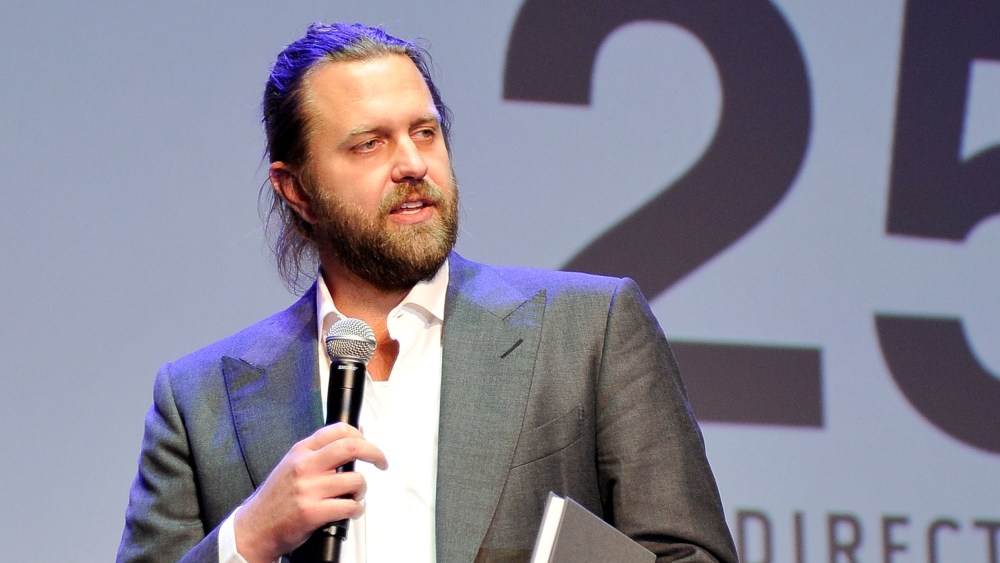Director Carl Erik Rinsch has been indicted on charges of fraud and money laundering for allegedly taking $11 million from Netflix and spending it on luxurious autos, classic furnishings and mattresses.
Rinsch demanded the funds in order to finish “White Horse,” a science fiction TV sequence that was not at all achieved, consistent with the indictment. In its place, he allegedly used the money to make “terribly harmful investments,” to pay for stays on the 4 Seasons and for various lavish purchases, and to hire authorized professionals to sue Netflix.
Rinsch, 47, was arrested Tuesday in West Hollywood, consistent with an announcement from the U.S. Lawyer’s Office for the Southern District of New York.
Netflix declined to comment.
The allegations had been first reported in a New York Cases story in November 2023. They’re moreover spelled out in a chronic arbitration ruling, which was made public closing August. The arbitrator ordered Rinsch to repay $11.8 million, and a Los Angeles Superior Courtroom resolve upheld the award in November.
In step with the court docket docket knowledge, Rinsch pitched the current — additionally known as “Conquest” — in January 2018 to Netflix executives along with Cindy Holland, who was then the VP accountable for genuine content material materials, and who left the company in 2020. With funding from Keanu Reeves — the actor who served as his mentor — Rinsch had already shot six transient episodes and a three-minute trailer.
Netflix agreed to invest $44 million to build up the sequence and produce the first season. A schedule was drawn up that known as for quite a few months of filming in Kenya, Mexico, Romania, Berlin, Hungary and Uruguay in 2019.
Rinsch began taking photos in Brazil and quickly went over worth vary, consistent with the court docket docket knowledge. Though he had promised to ship one different seven episodes, consistent with the arbitrator’s ruling, he educated Netflix that he would solely be able to full a single episode with the money Netflix had provided.
After manufacturing briefly shut down in Hungary, Netflix agreed to advance additional money. Manufacturing halted in December 2019, with lots work to be accomplished. Rinsch then set about growing the script, and demanded an additional $11 million to complete the first season, consistent with the ruling. Hoping to salvage the mission, Netflix agreed to pay the money in March 2020, the ruling states.
The COVID-19 pandemic promptly intervened, shutting down manufacturing worldwide. In June 2020, Rinsch met at a resort with Holland and one different Netflix authorities to offer an change.
“Rinsch spent an enormous portion of the meeting sharing different theories he had been creating about COVID, the universe, interconnectivity, genders, God, better callings and duplicate,” the ruling states. “He didn’t think about ‘Conquest.’”
Unsettled, the Netflix executives concluded he didn’t intend to finish the current. The lead actor moreover dropped out, citing the instability of the manufacturing. That fall, Netflix decided to jot down off the value of the sequence.
In step with the indictment, Rinsch had quickly transferred most of the $11 million to his brokerage account, the place he promptly misplaced about half of it by speculating on investments harking back to identify decisions on a biopharmaceutical agency and put decisions on an S&P 500 ETF. On the time he was nonetheless reassuring Netflix that the current was “superior and shifting forward fairly nicely,” the indictment states.
In step with the indictment, he used the remaining funds to spend cash on cryptocurrency in early 2021, which resulted in a windfall. The arbitration ruling states that Rinsch spent lavishly on different devices in late 2021, claiming the purchases had been wished for the second season of the current, which Netflix had not ordered. He was moreover apprehensive that the IRS would tax him on the money if it was not spent, the ruling states.
The purchases included $638,000 on luxurious mattresses; $295,000 on luxurious bedding and linens; $180,000 on kitchen residence tools; $5.4 million on furnishings; and $1.68 million on two Rolls Royces, the arbitrator’s ruling states. In step with the indictment, he bought 5 Rolls Royces and one Ferrari for $2.4 million. He moreover paid his lease on his residence in Spain, and approved funds to pursue Netflix for breach of contract in arbitration.
The grand jury indictment, unsealed Tuesday, accuses Rinsch of wire fraud, money laundering and 5 counts of using illicit funds in a transaction. Rinsch faces the potential of some years in jail, and the federal authorities may also be seeking to forfeit his property.
Rinsch filed a petition to overturn the arbitrator’s ruling in August, arguing that the arbitrator had misconstrued the contract as requiring 13 episodes. The resolve upheld the arbitrator’s selection.
